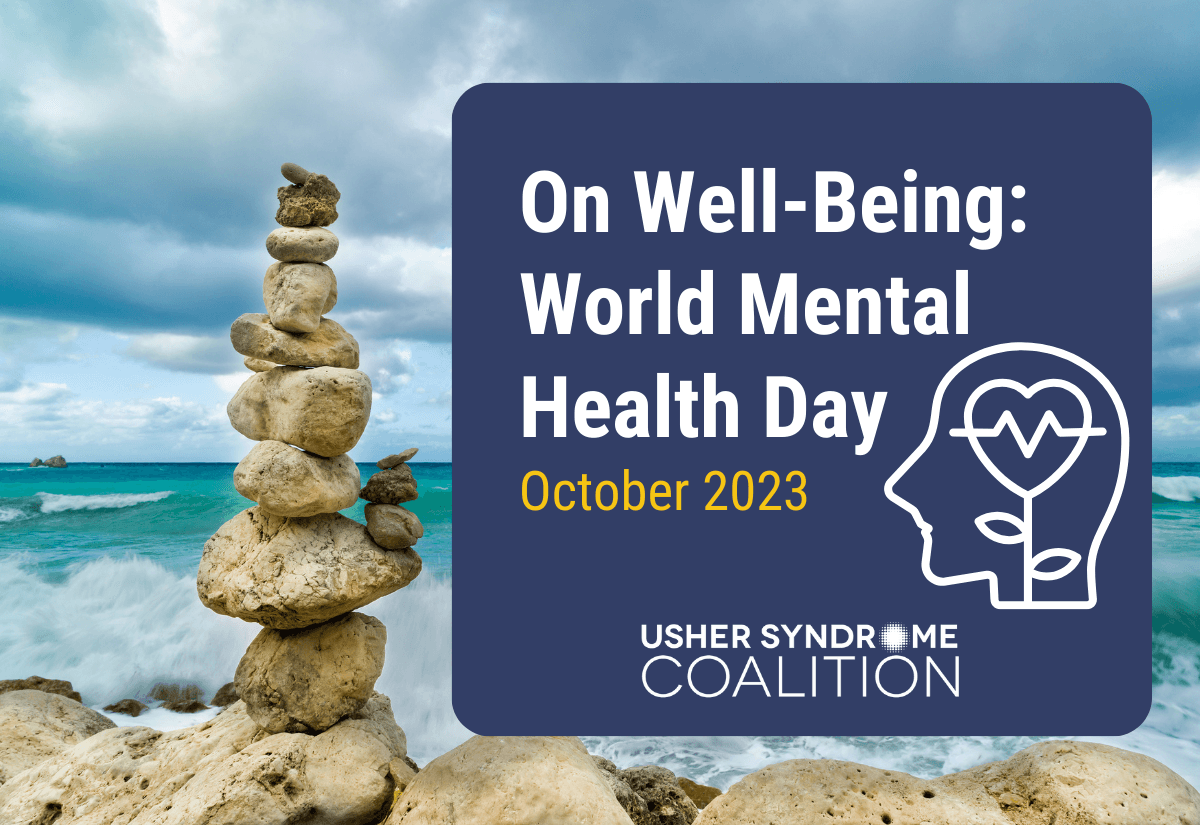
October 10th is World Mental Health Day, which is why we launched our Grounded in Science Newsletter on this day one year ago. This year, the theme is mental health is a universal human right. In the spirit of this day, we invite you to explore our new compilation of resources for Mental Health on our website.
Usher syndrome (USH) is an unpredictable and progressive condition, which may impact your sense of identity across your lifespan - from being a hearing-sighted person to a person who is DeafBlind. (Marine Arcous et al. 2020) Due to the rare nature of USH, along with wide ranging communication modes, there is a lack of mental health professionals available to the DeafBlind community, forcing an already isolated population, those experiencing progressive hearing and/or vision loss, into further isolation without access to mental health support.
Facebook groups evolved as a way for adults diagnosed with Usher syndrome to provide peer support, and connect to others who “get it”; but facilitators living with this condition are already dealing with their own cycles of loss and grief, and have not always been formally trained in counseling, mental health, and life coaching.
For many years, the Coalition has recognized the need for more mental health resources for the Usher community. We've taken a small step towards building those resources by applying for and becoming one of the first grant recipients of the RARE Mental Health Impact Grant from Global Genes. With this grant, we have conducted a “first-ever” 10-week training series for peer group facilitators who have Usher syndrome, led by Rebecca Alexander, psychotherapist with USH. This training focuses on establishing an accessible virtual environment, techniques of group facilitation, mediating conflict, navigating grief, maintaining neutrality, and resources for referral.
This 10-week training series empowers facilitators of USH Facebook groups and Discord chats, as well as our USH Ambassadors, to be a better resource for the community, following a “peer support model.”
The idea behind the peer support model is: “[Involving] a mutual exchange of practical and emotional support, based on ‘shared understanding, respect, and mutual empowerment between people in similar situations’ with critical ingredients such as shared responsibility, hope, self-determination over one's life, and the use of lived experience knowledge” (Smit et al. 2022).
It is important to note that peer support ultimately doesn’t replace the years of professional training and experience held by a mental health professional.
Do you know the really great thing about the USH community? It’s filled with experts on Usher syndrome - YOU. You have the lived experience, which is invaluable, allowing you to have connections with peers who have been there before.
With your peers, it may be easier to feel a sense of connection and to create a safe place to share the various emotional ups and downs you experience. You might ask yourself what you feel when you receive unpleasant news. What thoughts and feelings do you have when you receive joyful news? With the support of peers with shared lived experiences, you become less isolated, and it becomes easier to be resilient as a community.







